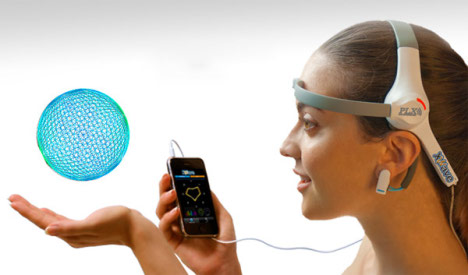Unleash the power of your mind, experience the benefits of MindZoom for yourself! Order MindZoom today
Reaching immortality by the year 2045?

In the year 2045, humans will reach "digital" immortality by being able to upload their minds to a computer.
What seems to be the subject of a Sci-Fi movie, is a real idea proposed in the Global Futures 2045 International Congress that had the presence of diverse personalities from the scientific community and organized by the russian billionaire Dmitry Itskov.
Ray Kurzeil, Director of Engineering at Google, predicts that by 2045 technology will surpass the human intellectual capacity creating a kind of super-intelligence, an event known as the Singularity.
According to Moore's law, computing power doubles approximately every couple of years. Many similar technologies are experiencing similar exponential growth as with genetic sequencing and 3D printing.
Kurzweil mentions that by 2045 and based on conservative estimations of the amount of computing needed to simulate a functional brain, we could increase the reach of our intelligence about a billion times.
Itskov and a like minded group called "transhumanists" interpret this imminent singularity as a kind of digital immortality. They believe that in a few decades we will be able to upload their minds to a computer and surpass the need for an organic body. Sounds far fetched, but in reality there are currently important advances in neural modeling and technologies to replace biological functions.
The first steps to narrow that mind-machine gap have been successful. For example cochlear implants that allow the stimulation of the cochlear nerve to provide sound signals to the brain.
Now more complex interfaces are in research, like the works of José Carmena and Michel Maharbiz, Electrical Engineers from Berkeley, who are developing pill-sized devices to register neural signals from motor areas of the brain to be decoded on a computer and control a cursor on the screen.

Theodore Berger, neural engineering at the University of Southern California in Los Angeles, investigates the possibility of manipulating part of the hippocampus (a brain region that converts short-term memory to long term). The device recorded the electrical activity that encodes a single short-term memory to convert it into a digital signal. This signal is transmitted to a computer in which it becomes mathematical and then sent back to the brain, where it will be placed on long-term memory again. So far the technique has been successfully tested in rats and monkeys, waiting for testing in humans.
During the conference Martine Rothblatt, CEO of biotech company United Therapeutics Corp mentioned that "The purpose of Biotechnology is the end of death" and introduced the concept of "mindclones" digital versions of human beings that can live forever.
Moreover, the physicist Roger Penrose of Oxford University argued that consciousness is a quantum mechanical phenomenon arising from the structure of the universe, so this utopian brain-computer interface will necessarily involve quantum computers, development unlikely to happen by 2045.
In my perspective 2045 is too soon for us to reach a complete understanding and the technology involved to have a real thinking, feeling, emotional being in a mechanical device. I believe basic and limited intelligence (very complex none the less) will be mapped and transported to a system, but talking about storing consciousness, a task that took the universe billions of years in the making, will take us a bit more to decipher and control. But in the other hand, I'm happy there are great minds that are in pursuit of what seems to be impossible, that's what has led humanity to achieve this exponential technological growth in the last 50 years.
Warmly,
Dino Ruales
What do you think? Leave me a comment below!


